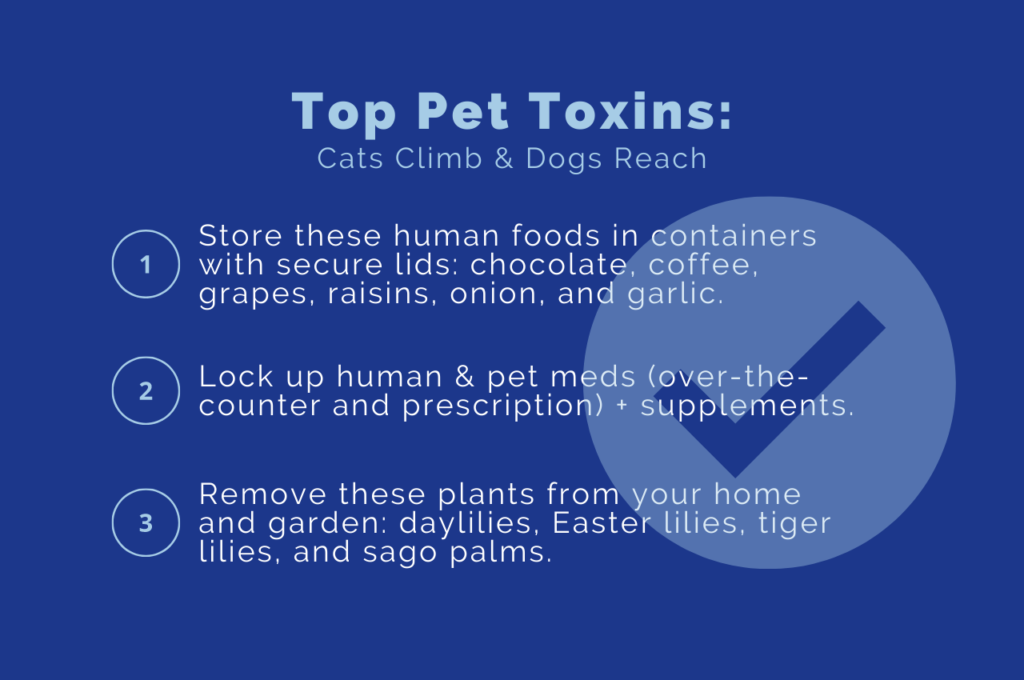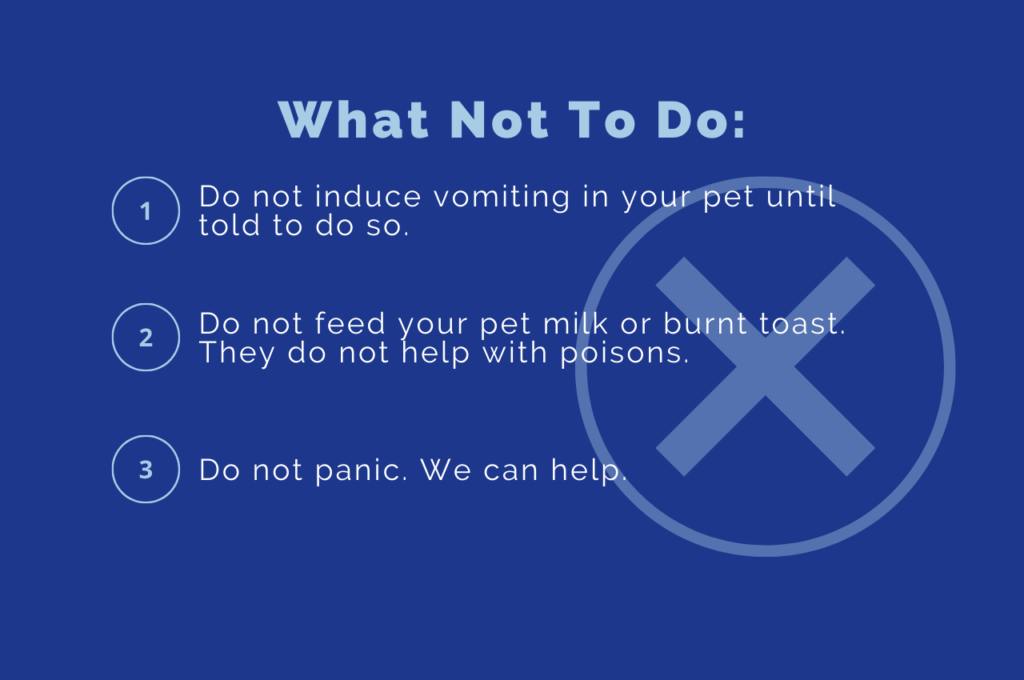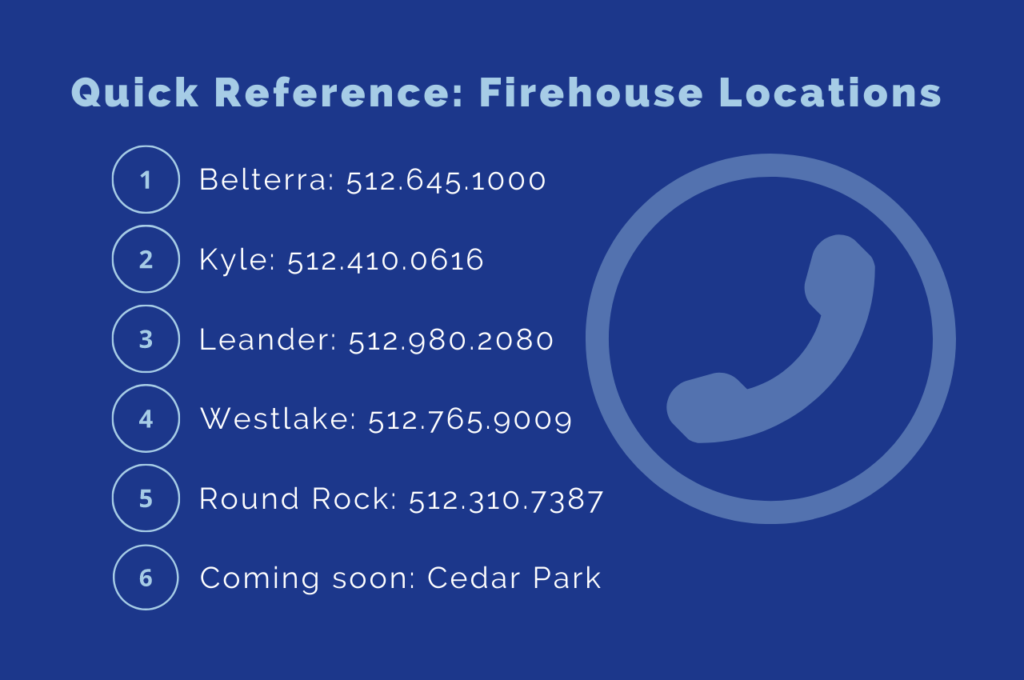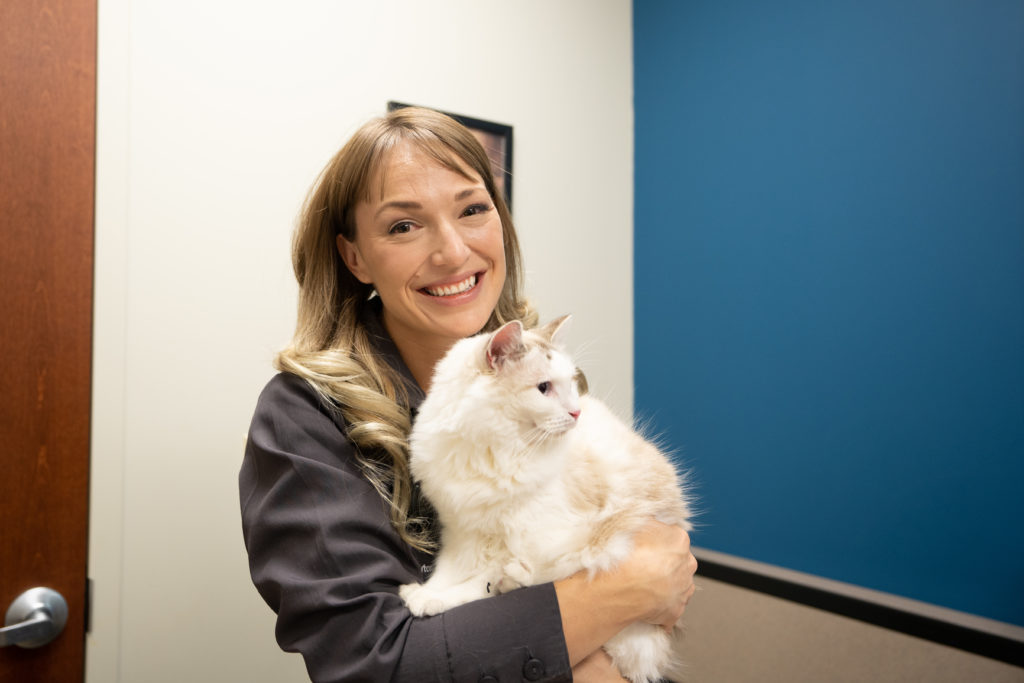1 min read

“Recently, we had a beagle come in that got into the left-over Halloween candy. The owners brought her in quickly and we were able to induce vomiting. She had eaten a very large amount, so it was great that they brought her to us so fast. A week later, she started feeling bad. We took some X-rays and found a foreign body in her stomach. She had to have emergency surgery and we discovered that she had not only eaten all of the leftover candy but had also ingested a Halloween eraser. The surgery was a success and she’s doing great! We were grateful the owners called us back and we could take a second look at her. We don’t judge a family for what a pet might eat. It happens and we just want to help!” –Dr Jennifer Moon, Firehouse Leander
If you suspect your pet has eaten something they shouldn’t have eaten, don’t panic. Many pets eat toxins. We won’t judge you over the item or substance. Life happens. We’re here to help.
Step 1: Find the packaging.
It helps to have the product packaging so you can answer questions about ingredients. If you don’t have it, don’t worry – Firehouse and ASPCA can still help you out.
Your doctor can offer better solutions if he or she knows exactly what your pet ate or touched. Find the poison, toxin, chemical, or food packaging. Gather the following information:
-Active ingredient
-Percentage or concentration of active ingredient
-Size in ounces
For example, it helps to know the type of mouse poison your pet ate. This helps ensure your pet receives the correct, potentially life-saving treatment.

Step 2: Contact the ASPCA.
Firehouse recommends the ASPCA pet poison hotline over other hotlines. The team who answers the phone includes licensed veterinarians, veterinary technicians, and veterinary toxicologists.
ASPCA: (888) 426-4435
The hotline is open 24 hours a day, 365 days a year.
Step 3: Follow their instructions.
Do not induce vomiting in your pet unless told to do so. Caustic substances and chemicals can create more harm as your pet vomits.

Step 4: Save the case number and call Firehouse.
If needed, your veterinarian will call the helpline to discuss the treatment plan.
Step 5: Call us to tell us you’re on the way with your pet.
We’ll jump into action as soon as you arrive!

March is National Pet Poison Prevention Month. Yet, stay alert all year long. Keep these tips close at hand. And remember, we’re here for you 24/7. Don’t hesitate to give us a call.

Know what to do should your cat or dog eat a poisonous human food, medicine, or house plant.
